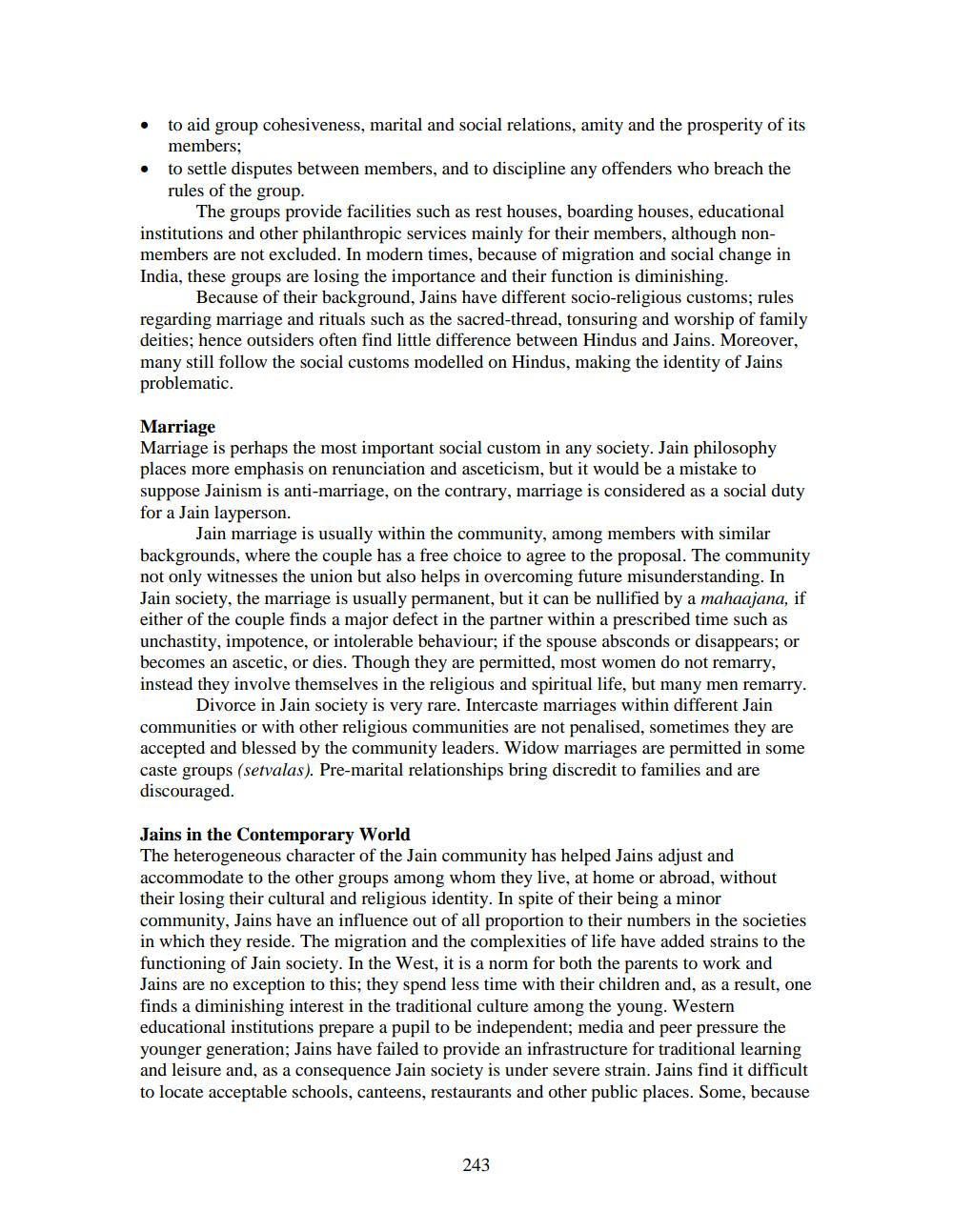________________
to aid group cohesiveness, marital and social relations, amity and the prosperity of its members;
⚫ to settle disputes between members, and to discipline any offenders who breach the rules of the group.
The groups provide facilities such as rest houses, boarding houses, educational institutions and other philanthropic services mainly for their members, although nonmembers are not excluded. In modern times, because of migration and social change in India, these groups are losing the importance and their function is diminishing.
Because of their background, Jains have different socio-religious customs; rules regarding marriage and rituals such as the sacred-thread, tonsuring and worship of family deities; hence outsiders often find little difference between Hindus and Jains. Moreover, many still follow the social customs modelled on Hindus, making the identity of Jains problematic.
•
Marriage
Marriage is perhaps the most important social custom in any society. Jain philosophy places more emphasis on renunciation and asceticism, but it would be a mistake to suppose Jainism is anti-marriage, on the contrary, marriage is considered as a social duty for a Jain layperson.
Jain marriage is usually within the community, among members with similar backgrounds, where the couple has a free choice to agree to the proposal. The community not only witnesses the union but also helps in overcoming future misunderstanding. In Jain society, the marriage is usually permanent, but it can be nullified by a mahaajana, if either of the couple finds a major defect in the partner within a prescribed time such as unchastity, impotence, or intolerable behaviour; if the spouse absconds or disappears; or becomes an ascetic, or dies. Though they are permitted, most women do not remarry, instead they involve themselves in the religious and spiritual life, but many men remarry. Divorce in Jain society is very rare. Intercaste marriages within different Jain communities or with other religious communities are not penalised, sometimes they are accepted and blessed by the community leaders. Widow marriages are permitted in some caste groups (servalas). Pre-marital relationships bring discredit to families and are discouraged.
Jains in the Contemporary World
The heterogeneous character of the Jain community has helped Jains adjust and accommodate to the other groups among whom they live, at home or abroad, without their losing their cultural and religious identity. In spite of their being a minor community, Jains have an influence out of all proportion to their numbers in the societies in which they reside. The migration and the complexities of life have added strains to the functioning of Jain society. In the West, it is a norm for both the parents to work and Jains are no exception to this; they spend less time with their children and, as a result, one finds a diminishing interest in the traditional culture among the young. Western educational institutions prepare a pupil to be independent; media and peer pressure the younger generation; Jains have failed to provide an infrastructure for traditional learning and leisure and, as a consequence Jain society is under severe strain. Jains find it difficult to locate acceptable schools, canteens, restaurants and other public places. Some, because
243




